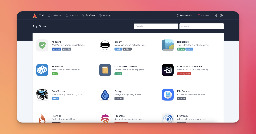Runtipi: Homeserver management made easy



runtipi.io
It has an 'App store' that's been growing a lot lately. Writing new docker-compose.yaml files is easy (see: https://www.runtipi.io/docs/contributing/adding-a-new-app ), and exposing them behind NAT, e.g. from home it's easy too (see: https://www.runtipi.io/docs/guides/expose-apps-with-cloudflare-tunnels )... But my favorite perk is the folder structure (see: https://www.runtipi.io/docs/reference/folder-structure ), and the fact that 'media' is shared between apps.
You are viewing a single comment
How does this compare to Yunohost?
The most salient difference is that YNHST is tied to Debian, while Runtipi is a set of containers you can install on any distro
What are the pros and cons?
These comparisons are extremely difficult to make (not many people really tried all, we all judge from docs, etc.) That being said, I think runtipi is simpler in the curve of customization, if you have the knowledge. If you don't, well then maybe, a full-blown OS is better. But my original post addressed the advantage I see on runtipi, with all the links to the docs. It's powerful and encourages customization. To me, it's a good mid-point between 'raw' docker (e.g. linuxserver.io which btw provides most of the images), and a highly automatized system. For example, one of the bigger features is that you can set repositories (e.g. on GitHub) as stores: I will repeat the link to these docs here: https://www.runtipi.io/docs/contributing/adding-a-new-app ..over these repos you simply write docker-compose YAML files. I don't know what's the solution to this on CasaOS, but YunoHost has a set of scripts or bash functions. That's something I believe takes more effort to mantain. All in all, imho, runtipi has a good balance between flexibility, complexity, and customization.
Or casaOS